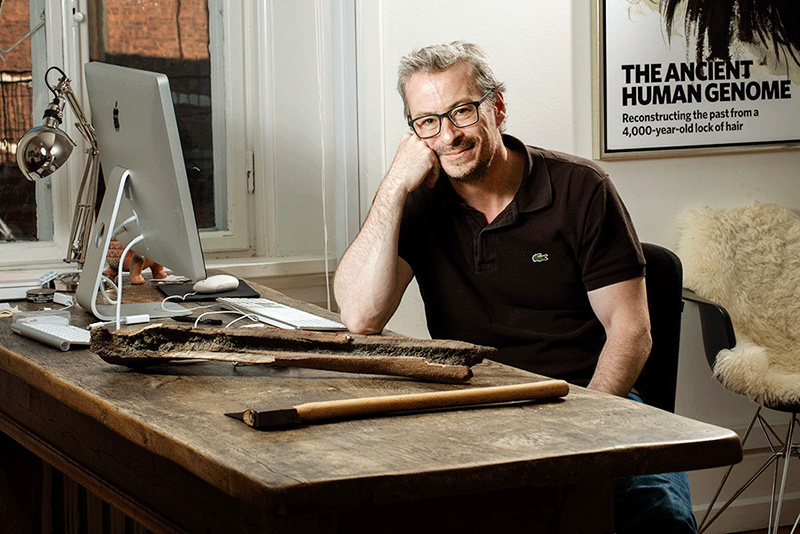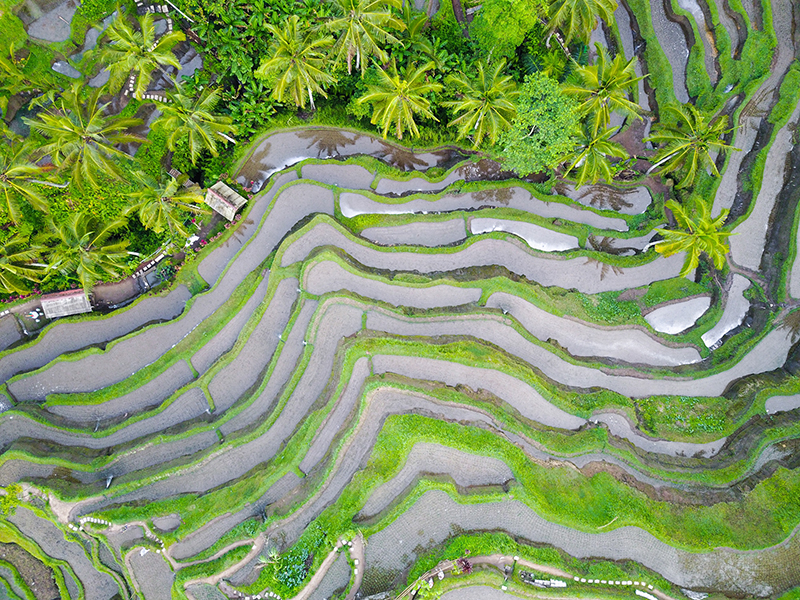Professor Eske Willerslev awarded Semper Ardens grant of £2.3m for research into ancient rice genes
"This project could potentially help fight hunger and increase food security all over the world"
The Carlsberg Foundation has awarded DKK 19m (£2.3m) to Professor Eske Willerslev, a Fellow at St John's College, for the Semper Ardens project ‘Uncovering the genetics of rice resilience to environmental stressors: An ancient genomics approach.’
The project, which will be carried out in cooperation with the Carlsberg Research Laboratory, will map the genome of extinct rice strains with the intention of identifying genes that can be used to make the rice grown today stronger and more resilient.
Rice is the world’s second-most important crop; yet every year vast amounts of the harvest are lost due to disease and extreme weather. By identifying useful genes that can improve the resilience of current rice strains, it will be possible to nurture these genes during the plant breeding process and increase harvest quantities, a key factor in the global fight against famine.

Professor Eske Willerslev. Photo credit: Mikal Schlosser
The project will build on a discovery that Professor Willerslev made during his PhD
The research, which will primarily be conducted at the Natural History Museum of Denmark at the University of Copenhagen, Cambridge University, and the Carlsberg Research Laboratory, will map the genomes of extinct rice strains.
Historically there have been great technical challenges to mapping these genomes, as old rice grains are relatively rare and often burnt, and therefore the DNA quality is usually poor. However while studying for his PhD, Professor Willerslev made the discovery that ancient DNA from plants and animals can be extracted directly from old sediments (environmental DNA). Building on this discovery, the Centre for Geogenetics (metagenomics environmental DNA) have developed a new method of extracting full genomes from plants and their pathogens from sediments found on the bottom of lakes, which will now be used in the Semper Ardens project.
“By mapping the genome of cultivated rice through the last 10,000 years, it will be possible to find the genetic variants which have been important to the survival and reproduction of rice during extreme climate changes and epidemics but have gone lost in the breeding of today’s strains,” said Professor Willerslev. “These genetic variants, then, can be introduced into current rice strains to make them more resistant to changes in the environment. Potentially, it could help fight hunger and increase food security all over the world.”

Tegallalang Rice Terrace, Indonesia as seen from the air. Photo credit: Joel Vodell on Unsplash
"This project aims at identifying old genetic rice varieties with a natural robustness and resistance against certain diseases"
In addition to environmental DNA, the study will extract and sequence rice genomes from individual pollen grains. Dr. Ana Prohaska, who is developing this novel method with Professor Willerslev, explained:
“We will collect sediment cores from lakes in China, close to the areas where rice cultivation started approximately 10,000 years ago and extract the DNA of ancient rice from pollen grains preserved in these sediments.”
“We will use pollen DNA along with eDNA to search for, now lost, genetic variants, which have previously granted rice resilience to pathogens and climatic extremes, e.g., long spells of drought. Following this, the best candidate variants will be introduced into modern rice strains. We will do this by incorporating the genetic variants directly into the modern rice genome and, afterwards, growing the modified rice plants in different controlled environments to identify the most well qualified types.”
Speaking about the research Birgitte Skadhauge, Vice President of the Carlsberg Research Laboratory, said the project lines up with the main aims of the Carlsberg Research Laboratory.
She said: “One of the Carlsberg Research Laboratory’s key priorities is to, along with cultivators around the world, identify new genetic varieties that can withstand extreme weather and climate changes. This project aims at identifying old genetic rice varieties with a natural robustness and resistance against certain diseases. In this, the Carlsberg Research Laboratory contributes expertise in testing and traditional cultivation in order to identify such genetic varieties in modern rice and thereby improving the rice plants of the future.”
The project “Uncovering the genetics of rice resilience to environmental stressors: An ancient genomics approach” will primarily be carried out at Cambridge University, the Natural History Museum at the University of Copenhagen, and the Carlsberg Lab. There will be participants from England, USA, and China.
Published: 31/08/18